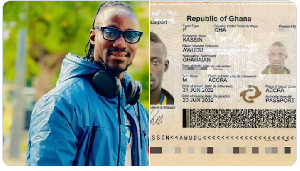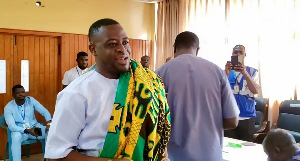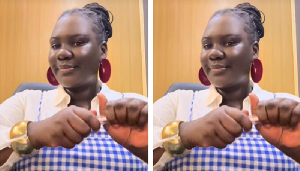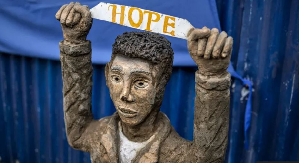A philosopher once said: “All that is necessary for evil to triumph is for good men to do nothing” (emphasis added). Judging from this, some of us will continue to resist and fight against the evil of police brutality, which is on the ascendancy. We will continue to agitate and use our pen and other lawful means to root out this intimidating evil. As matter of fact, the habitat of police brutality should be that of a jungle, not in Ghana where rule of law and democracy must reign supreme.
It appears that now in Ghana, a month will not past without a report on some police or military officers brutalizing people. As a matter of fact, in my first three publications on the above exigent issue, I enumerated credible reports of police brutality, which to me is very unthinkable. Interestingly, the police in almost all the reported cases initially forcibly tried to deny these allegations but the truth in these cases continue to stand tall with time.
ANOTHER POLICE BRUTALITY The first day of this month was made to be a sad one due to another alleged report of police brutality in Kintampo in the Brong Ahafo region of Ghana. The victim in this case is Mr. Francis Kofi Poku (a.k.a kalala), a 31-year old teacher. The deceased met his untimely death in police custody. As usual, the latter is denying any wrongdoing. Naturally, the truth will definitely come out since time is the best friend to truth.
Mr. George Kojo Atuah, alias Maclean, a driver of a mini-bus at Suhum, died in police custody the next day after his arrest on August 2, 2007. While members of his family and some members of the public accused the security operatives for his murder, the police contended that he died of natural causes (diarrhea). Therefore, the Ministry of the Interior set up a seven-member committee on August 15, 2007 to investigate the circumstances leading to the death of Mr. Atuah due to the contrasting reports on how he died. On September 3, 2007 the report presented by the committee established that the deceased upon his arrest was severely assaulted. This corroborates with the pathologist’s report, which pointed out that the deceased died as a result of massive internal bleeding. Consequently, two policemen and two soldiers have been implicated in the brutal beating that caused Mr. Atuah’s death. The said committee aptly recommended to the government to pay adequate compensation to the deceased’s family. It was added also that the government should bear the cost of the funeral expenses.
While commending the Minister of the Interior, Mr. Kwamina Bartels, as well as the seven-member committee for their role in Atuah’s case, we advocate that the other cases should also be investigated. As a matter of fact and law, all the victims should be treated fairly. In my earlier articles, numerous cases including Mr. Atuah’s were cited but the scale seems to be tilting toward only one victim. What is good for the goose is also good for the gander. It is therefore submitted that the other cases should be accorded the same seriousness as have been done in the above case. Messers Kwame Sarpong, Francis Kofi Poku and so forth inevitably and desirably also deserve justice.
CONCLUSION
The police, which is supposed to be the watchdog of peace and safeguard the rights of the citizenry, is gradually becoming a monster using the same apparatus for terrorizing innocent and weak common people. It must be strongly indicated that the police must act within the confines of the law no matter the circumstance of a particular case. Fellow Ghanaians, let us continue to fight (lawfully) against the menace of police brutality in our midst. Though we may not have fallen victim to these brutal acts, we should do unto others, as we would want others to do unto us. Who knows, tomorrow, you may be a victim.















